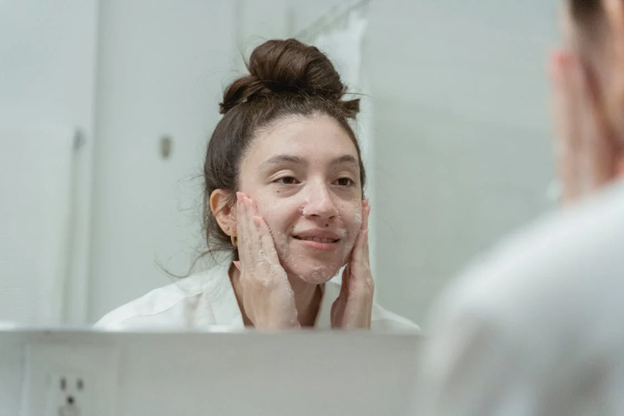A captivating radiance commences with diligent cleansing. Cream cleansers have carved an indispensable niche in countless skincare regimens, with their rich textures and reparative components striking a chord, particularly with sensitive or dry-skinned individuals. Nevertheless, the pertinent question remains: are cream cleansers the panacea for all skin types?
Reaping the Benefits of Cream Cleansers
Skincare aficionados have come to cherish the unique intersection of efficacy and comfort offered by cream cleansers. Renowned for their gentle action on the skin, these cleansers have won over those who value hydration and smoothness over abrasive cleansing tactics.
One substantial advantage of cream cleansers lies in their capacity to retain moisture. Laden with emollient-rich ingredients like jojoba oil, ceramides, and shea butter, they lavish hydration even on the most parched skin types. For those grappling with dehydrated or reactive skin, these cleansers eliminate dirt without robbing the skin of vital oils.
Further, cream cleansers exhibit versatility, serving a range of scenarios from erasing heavy makeup to post-sunscreen application cleansing. They offer an exhaustive and gratifying cleansing experience. Most formulas boast antioxidants and soothing ingredients like chamomile extract or aloe vera, which can help alleviate redness and irritation. This aspect makes them indispensable for those living with conditions like eczema or rosacea, as they actively mitigate skin sensitivity during cleansing.
Cream cleansers could also be the missing link in a rejuvenating cleansing ritual for maturing skin. They can fill the void left by the natural depletion of oils that accompanies aging, leaving skin feeling plush and hydrated after cleansing. The post-rinse skin ‘tightness’ common with other cleansers is absent with cream cleansers.
Navigating the Challenges of Cream Cleansers
Despite the array of benefits they offer, cream cleansers are not without their limitations. For one, they can leave an unwelcome residue. Some formulas might leave a filmy layer post-cleansing, which may feel heavy or uncomfortable for certain skin types.
Another drawback is their unsuitability for extremely oily or acne-prone skin. Cream cleansers, given their hydrating and oil-based nature, could intensify oiliness or block pores if not specifically formulated for acne-prone individuals. Those with oily skin types may encounter breakouts if their cleanser lacks non-comedogenic properties or is excessively rich.
Cream cleansers might disappoint those partial to the “scrubbed-clean” feeling. Their mild nature means they are less efficient at removing obstinate or waterproof makeup unless coupled with a washcloth or a double cleansing routine.
Lastly, premium cream cleansers might be cost-prohibitive for some users. The premium ingredients and specialized formulations often place them among mid-to-high-end products. While affordable alternatives exist, they might not offer the same degree of hydration or skin-barrier benefits.
Striking the Perfect Cleansing Balance
If your skin is dry, sensitive, or mature, the hydrating and soothing properties of a cream cleanser may work wonders. However, for those with acne-prone or excessively oily skin, a lightweight, non-comedogenic formula is preferable, if not exploring other cleansers entirely.
The optimal approach to making the right choice is to try a product that corresponds with your unique needs. Opt for products that are hydrating yet lightweight, or consider incorporating a cream cleanser into a double-cleansing routine.
A well-selected cream cleanser can cement its place in your skincare arsenal, helping you unveil a radiant, healthy complexion without sacrificing comfort.



